Planetary Science
-
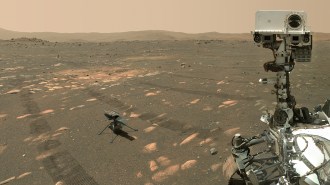 Planetary Science
Planetary ScienceMars has two speeds of sound
High-pitched clacks from a laser on NASA’s Perseverance rover zapping rocks traveled faster than the lower-pitched hum of the Ingenuity helicopter’s blades.
By Liz Kruesi -
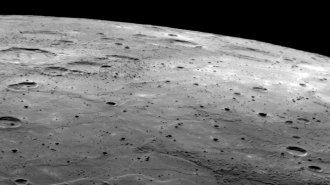 Planetary Science
Planetary ScienceDiamonds may stud Mercury’s crust
Billions of years of meteorite impacts may have flash-baked much of a primitive graphite crust into precious gemstones.
By Nikk Ogasa -
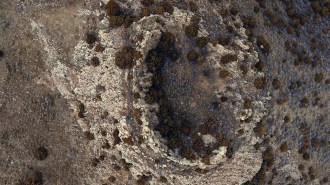 Planetary Science
Planetary ScienceAn ancient impact on Earth led to a cascade of cratering
For the first time, scientists have discovered clusters of craters on Earth that were formed by the impacts of material thrown out of a larger crater.
By Sid Perkins -
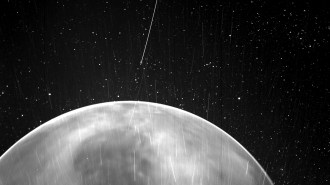 Planetary Science
Planetary ScienceThese are the first visible-light images of Venus’ surface captured from space
Cameras aboard NASA’s Parker Solar Probe managed to peer through Venus’ thick clouds to photograph the planet’s surface.
By Nikk Ogasa -
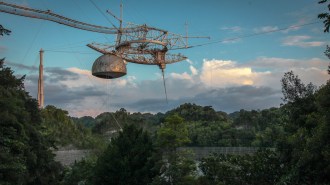 Planetary Science
Planetary Science50 years ago, Arecibo got an unprecedented view of Venus’ surface
Over its 57-year lifetime, Arecibo’s radar system measured the mountains around Venus’ middle, studied the textures of many rocky bodies in outer space and more.
-
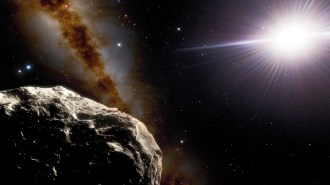 Planetary Science
Planetary ScienceEarth has a second known ‘Trojan asteroid’ that shares its orbit
A recently found space rock is about one kilometer wide, orbits ahead of Earth around the sun and will stick around for at least 4,000 years.
By Liz Kruesi -
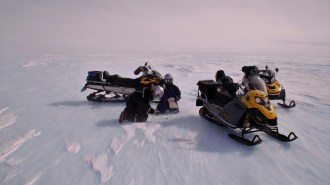 Planetary Science
Planetary ScienceMachine learning points to prime places in Antarctica to find meteorites
Using data on how ice moves across Antarctica, researchers identified more than 600 spots where space rocks may gather on the southern continent.
-
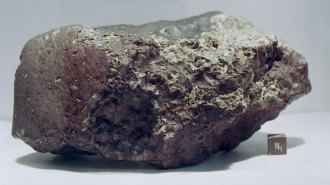 Planetary Science
Planetary ScienceOrganic molecules in an ancient Mars meteorite formed via geology, not alien life
Analysis of an ancient Martian meteorite reveals that organic molecules within it were formed by geologic processes rather than alien life.
By Nikk Ogasa -
 Astronomy
AstronomyAstronomers identified a second possible exomoon
Kepler 1708 b i, a newly discovered candidate for an exoplanet moon, has a radius about 2.6 times that of Earth, a new study suggests.
By Sid Perkins -
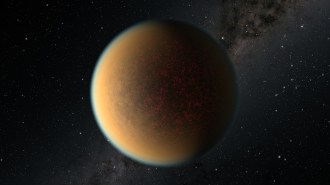 Planetary Science
Planetary ScienceOxygen-rich exoplanets may be geologically active
Experiments show that rocks exposed to higher concentrations of oxygen have a lower melting temperature than rocks exposed to lower amounts.
By Shi En Kim -
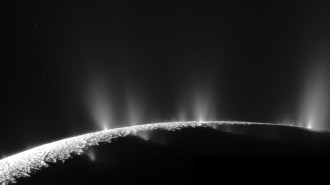 Planetary Science
Planetary ScienceEnceladus’ plumes might not come from an underground ocean
The celebrated plumes of Saturn’s moon Enceladus could come from pockets of watery mush in the moon’s icy shell, simulations suggest.
-
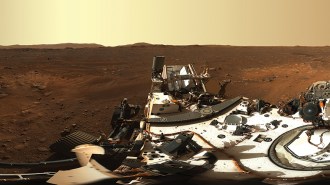 Space
SpaceSpacecraft in 2021 set their sights on Mars, asteroids and beyond
This year, a bevy of new missions got under way on Mars and spacecraft prepared to visit asteroids.